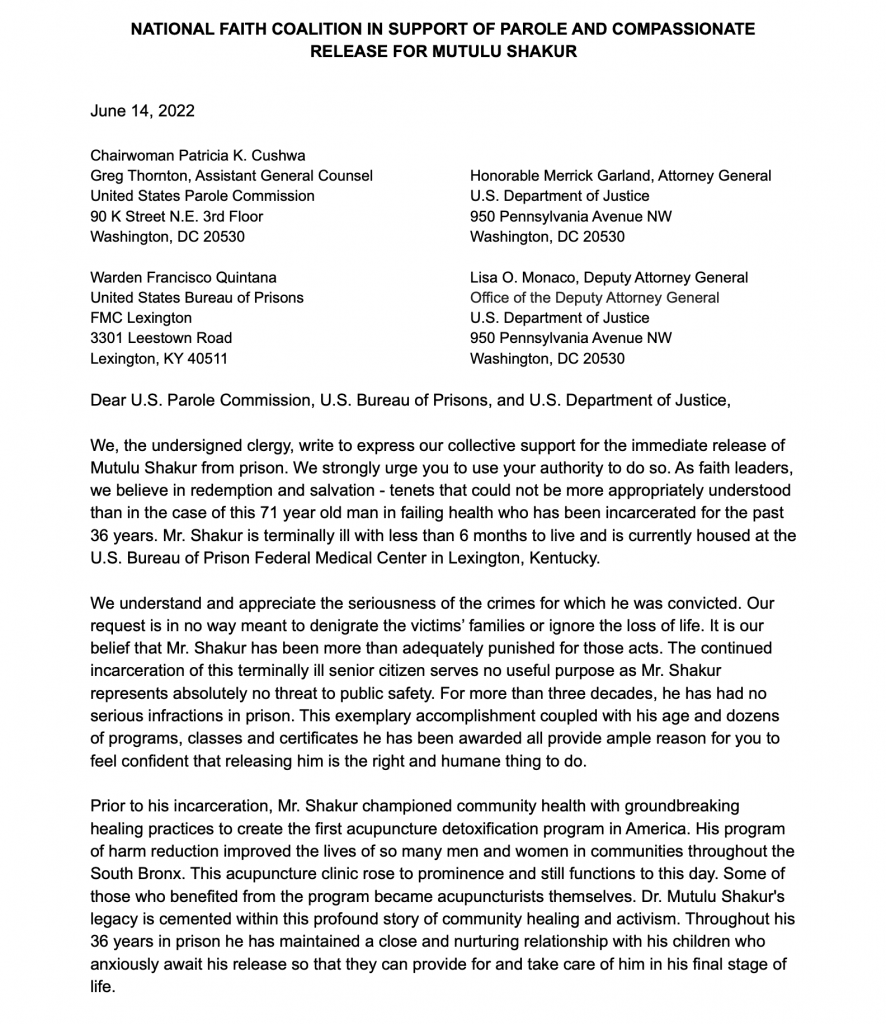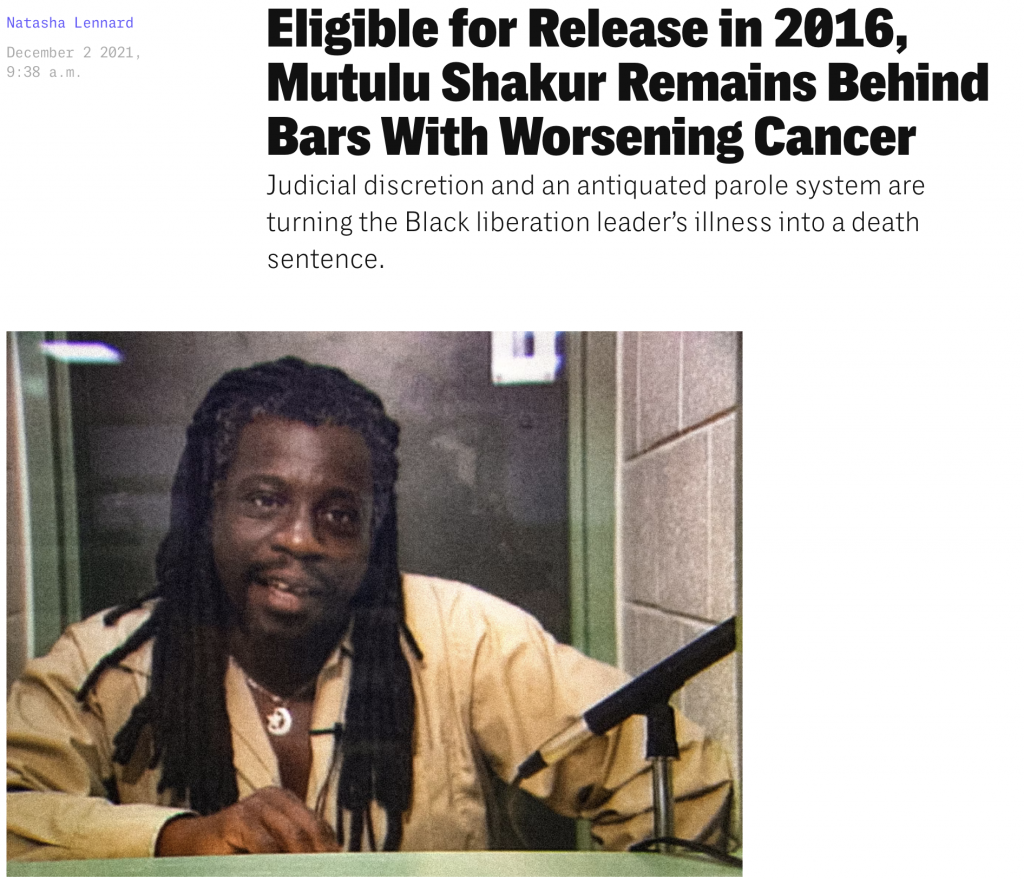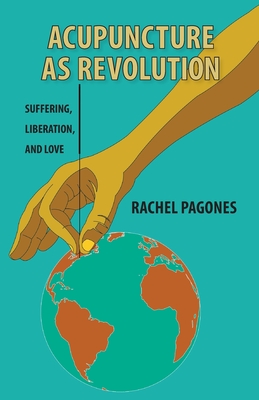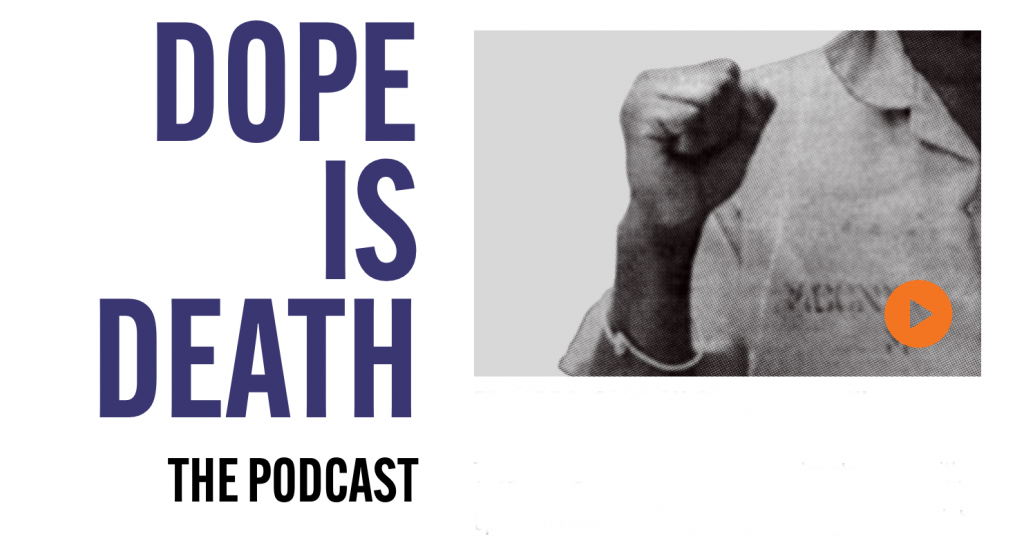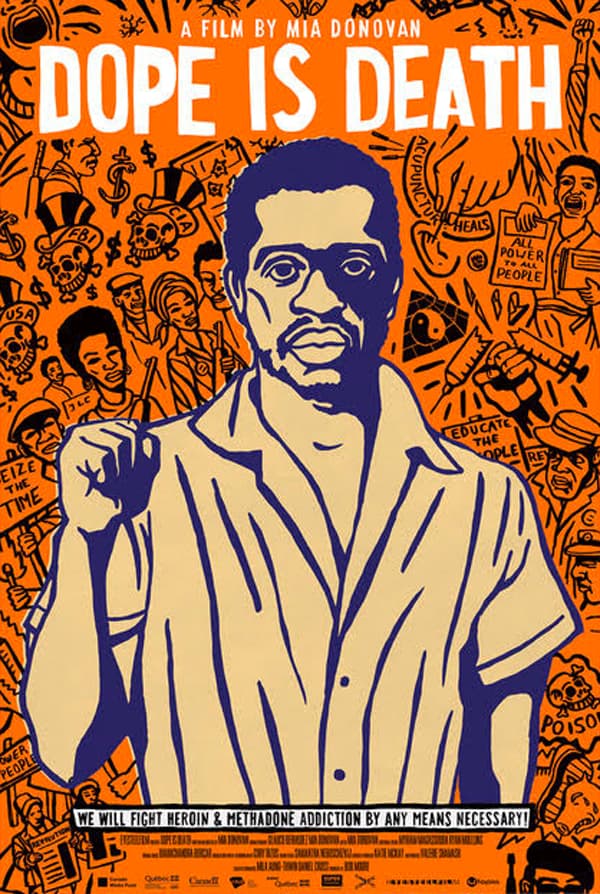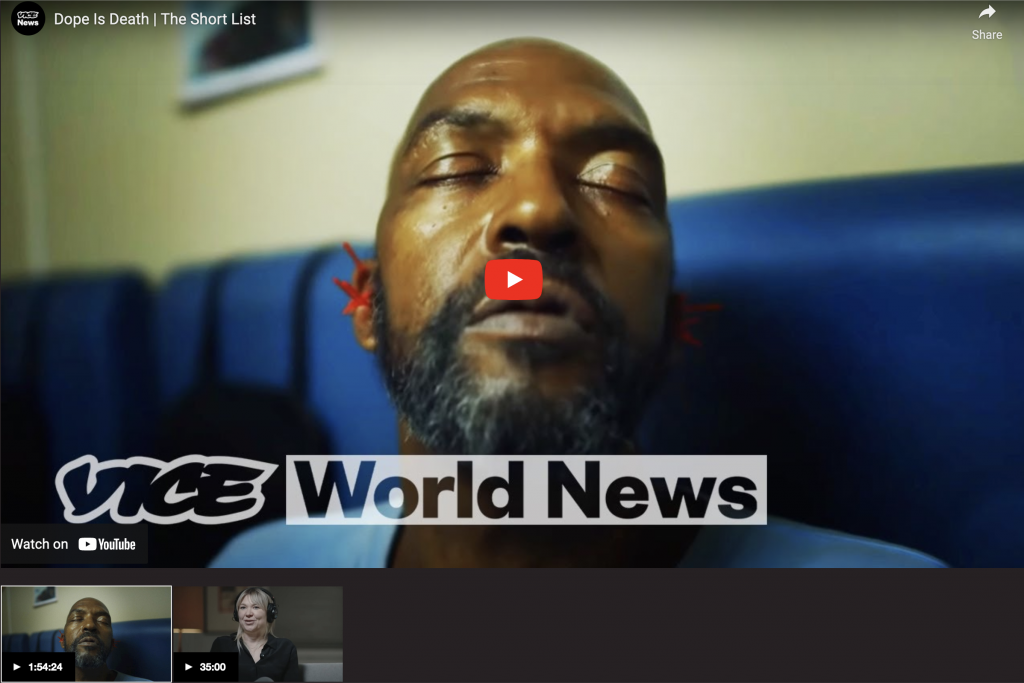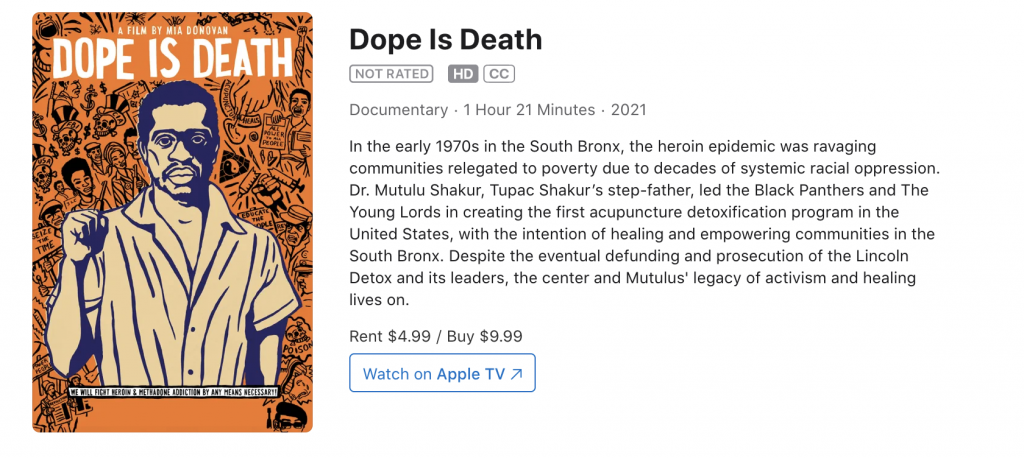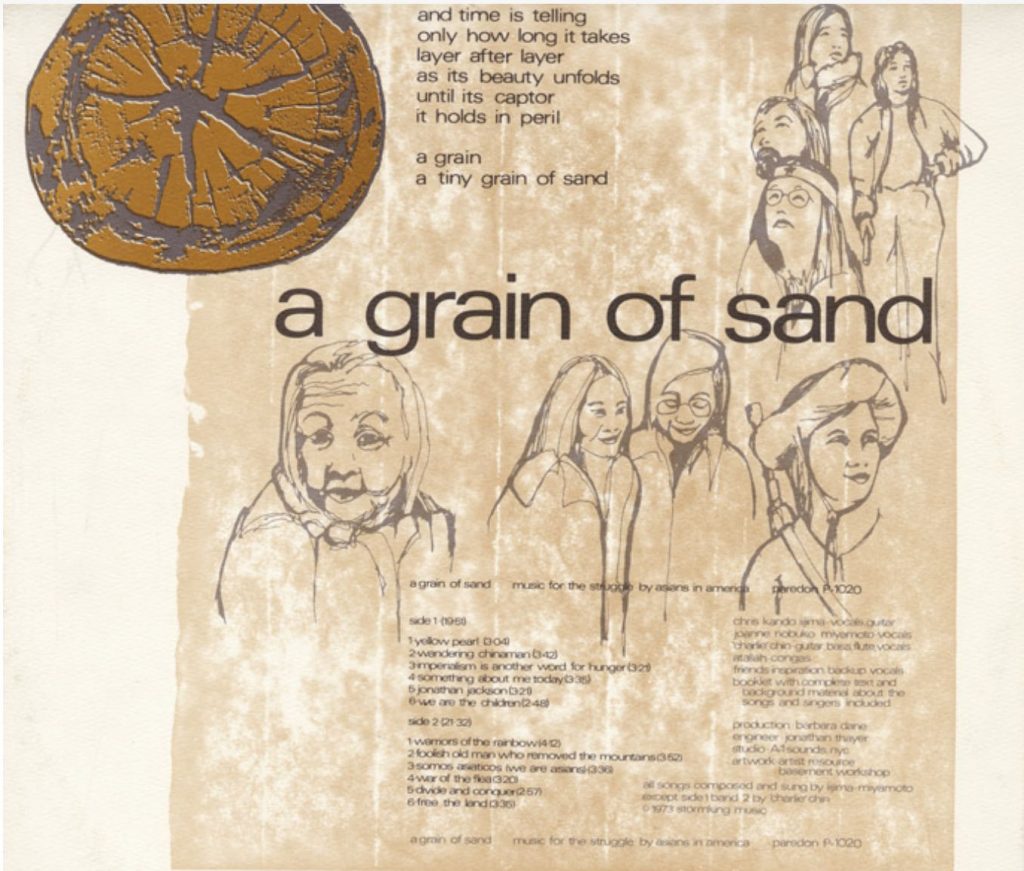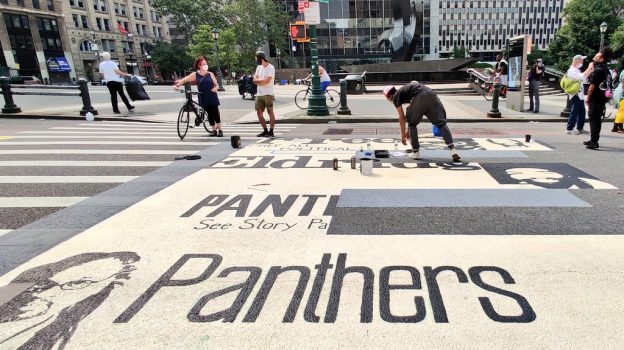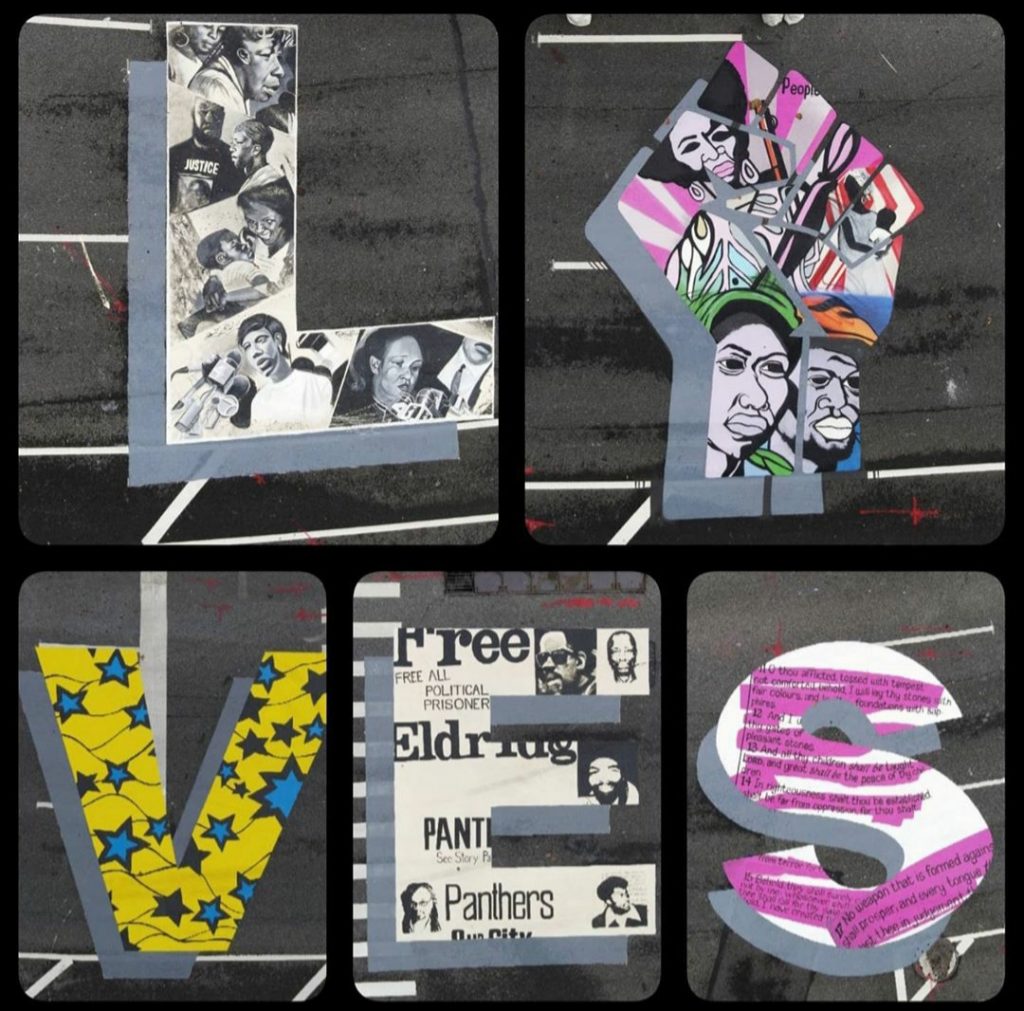Mutulu Shakur: Proof That a Different Kind of Prison is Possible
He helped us and paid with his life
By Pam Bailey
In 1988, Mutulu Shakur, a Black-liberation leader and stepfather of the late rapper Tupac Shakur, was convicted in connection with the robbery of a Brink’s armored truck, during which three people were killed (although not by him). He has been incarcerated for 35 years now and has repeatedly been denied both parole and compassionate release, despite a record of peaceful and productive leadership in prison.
Now, at age 71, Shakur has been diagnosed with advanced bone marrow cancer. An oncologist has told the court that even with successful treatment, Shakur will likely die within two to three years. Without treatment, or if it fails, he is expected to live fewer than 11 months. Nearly 55,000 people have signed a petition calling on President Biden and the federal Bureau of Prisons to grant Shakur immediate compassionate release.
James Carpenter, released in 2020 after serving 24 years, is one of those signatories. But unlike most of them, he has personal knowledge of the role model Shakur has become. They were incarcerated together back in the early 2000s.
“They should let that man go home,” he says. “He’s been nothing but positivity and an uplifter of people, always working to intervene in conflicts and find solutions to problems. The concept of tolerance and cultural diversity that is so big right now? I heard it from him years ago.”
Continue reading →
